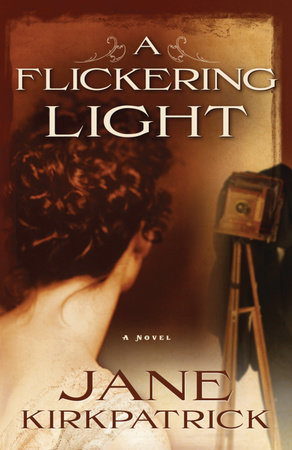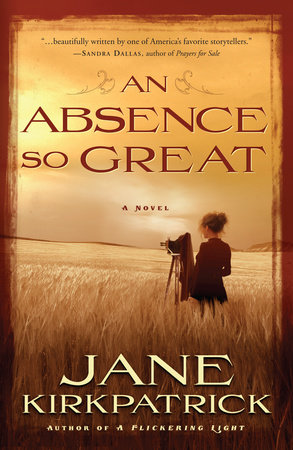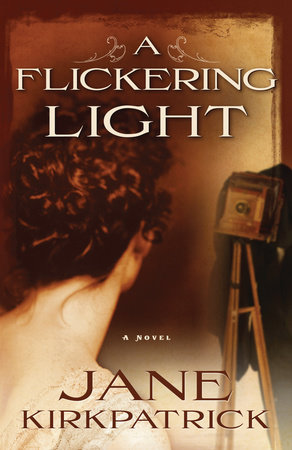Excerpt
A Flickering Light
AGAINST THE MORNING DARKNESS, Jessie Ann Gaebele quietly litthe stubby candle. Its feeble light flickered at the mirror while she dressed. She pulled her stockings on, donned her chemise, debated about a corset, decided against it. She’d make too much noise getting it hooked. No one was likely to see her this morning anyway, and she’d be back before her mother even knew she’d left the house without it. She could move faster without a “Grecian Bend,” as ladies magazines called the posture forced by the stays and bustle. She guessed some thought it an attractive look for a girl in 1907, emphasizing a small waist and a rounded derrière. Jessie claimed both but had little time for either that morning, and timing mattered if she was to succeed. If Jessie didn’t catch the moment, it wouldn’t be for lack of trying.
She spilled the dark linen skirt over her petticoat, letting it settle at her slender frame. She inhaled the lavender her sister Selma insisted be added when they made their own soap, something they did more often now since they’d moved to Winona, Minnesota. Selma was prone to sensuous scents; sensuous music too, her husky voice holding people hostage when she sang.
Jessie looked at her sleeping sisters. The candlelight cast shadows on the tousled hair of Selma, her younger sister, and on the nightcap that Lilly, her older sister, always wore. (“It will keep you from catching vapors in the night,” Lilly claimed). Jessie pulled on the white shirtwaist. Even in sleep they reflected who they were when awake: Selma, dreamy and romantic; Lilly, organized and right. Always right. Jessie slept somewhere between them, literally. In life she guessed she had a bit of both of those girls’ practices in her. Selma would approve of Jessie’s morning goal for its dreamy adventure; Lilly wouldn’t. But Jessie’d organized it as Lilly would, leaving little to chance. She’d walked the route, knew the obstacles. She anticipated what she’d find when she got there. If she could make it on time.
Luckily there were only five buttons down the back of her blouse, close to the high neck. She considered waking Selma to help her button them but decided against it. Selma would want the details and wake up Lilly, who would question her judgment. Jessie would not lie. Lilly would point out how ridiculous she was being, rising early and setting out for such foolishness when she had an important appointment in the day ahead. “
That should be your emphasis,” Lilly would say. She spoke as though
she were Jessie’s mother. Oh, she meant well; older sisters did. That’s what her mother told her. But still, Jessie was tired of having every person in the family older than she considered wiser and worldlier too.
So Jessie reached back and buttoned the blouse herself, then centered a beaded-buckle belt on her tiny fifteen-year-old waist.
Hat or no hat? Going out in public without her hat would be too casual. Someone just might question what she was doing or, worse, remember and tell her mother. She could get by without the corset, but she’d best wear the hat.
She tossed a shawl around her shoulders, grabbed her shoes, then dropped one by mistake. She held her breath, hoping no one would wake. She blew out the candle and waited.
“Jessie?”
“Go back to sleep, Selma.”
“What are you up to?”
Jessie moved to her sister’s side of the bed and whispered,
“Don’t wake Lilly, all right? It’s a secret. Can you keep a secret?”Her sister nodded. “I’m going on an adventure.”
“Can I come too?”
“Not this time. But I’ll tell you all about it after you get home from school. Just don’t tell, please? If Mama asks, just say you don’t know. Because you don’t.”
“Is it about a beau?”
“You read too many of those stories in
Woman’s Home Companion.
No boys. Nothing like that.”
“I better tell Mama.” She pushed the quilt back onto the empty space where Jessie had slept. “She won’t like you going off by yourself in the night.”
“No!” Jessie looked at Lilly to see if her loud whisper had awakened her.
“It’s nothing. I’ll be back before breakfast.”
“All right. But you’ll tell me everything?”
“Everything necessary,” Jessie said.
Her sister settled back under the quilt, and Jessie picked up her shoe. She’d nearly crippled her adventure before it even started! Shetiptoed past Roy’s room with special quietness, careful of the oak floor that creaked at a certain place near the head of the stairs. Roy had hearing like their mother’s. That woman could tell when any of them squabbled in the bedroom over a hair piece even when she was outside in the yard, hanging up clothes on the far side of the house while the wind blew! Sadness bordered Jessie’s thoughts of her little brother like a photographic frame. Jessie slipped past his room, past her parents’ door, out onto the porch with the swing, and sighed relief.
Outside, Jessie inhaled the morning. Late March and the promise of an early spring. Not long before flowers would poke their heads up through the crusty Minnesota ground. She heard a steamship whistle bawling its presence at Winona’s docks along the Mississippi. The shawl would be enough to ward off the cold once she started walking, and the promised sun would warm her up when she stood still.Within an hour, dawn would offer up its gift but would wait for only a few seconds for Jessie to receive it. After that, the shapes she wanted to capture would change, and soon the snow would be gone, the city would stop the burning, and she’d have to wait another year. She had little time to spare. She couldn’t be late today.
On the porch steps, she pulled on her high-button shoes, then grabbed the heavy leather bag from behind the porch latticework, where she’d placed it the night before. Her uncle August Schoepp had given her the bag and its precious cargo just last year, she supposed in memory of their time at the St. Louis World’s Fair. It was her treasure. She drew the strap over her shoulder, centered the weight on her right hip, then set off, holding the bag out to prevent the bruises it often left behind. The corset might have been a help to support her back against the bag, but it was too late to think of that now.
She set a fast pace on Broadway, liking the feel of the new concrete solidness pounding up through her slender legs. She crossed the street, kept walking. Pigeons flew from the rooftop of the Winona Hotel. Pancakes of dirty snow exposed themselves in the shaded window wells. The clank of railroad cars connecting and departing at the repair yards broke the morning calm. Against the gas streetlights, fingers of elm and maple branches rose before her. There’d be buds on them before long, and the maple sap would drip like dark honey down the trunks, making a rich contrast of brown on black.
She turned the corner, walked several more blocks, then at the lamplight flickering in the bicycle shop’s window, Jessie grinned. Mr. Steffes had remembered. He was not a founder of the city, but he’d been around to see many of its changes while running his cycle livery and dealership and doing repair work on the side.
A bicycle leaned against the framed wall. Maybe he meant for her to just take it. It would certainly save time. But he might have left it for someone else. She’d better go in and check.
Jessie stepped inside, the small bell above the door announcing her arrival. She scanned the room. “Mr. Steffes? I’m here. Is the bicycle outside the one you meant for me to take?” The silence felt heavy. The shop smelled of sawdust, the kind brushed onto the wooden floors to soak up grease and oil. It was awfully cluttered. And still. “Mr. Steffes?” Jessie swallowed. “Remember? I left you a nickel for the use of the bicycle this morning. I said I’d come early.”
She stumbled over a bucket filled with rags. Maybe she could earn the five cents back by offering to clean up this place. That thought made her cringe. Her mother would not be pleased to know she’d spent a nickel of her own hard-earned dollars from the book bindery on something frivolous like a bicycle rental, especially because she’d recently been released from the bindery. There was little money to spare with her father’s illness, which the doctors couldn’t name or fix. He had so much pain that they’d had to leave their Wisconsin dairy farm near Cream and move across the Mississippi into Winona, where the girls could find employment and they could be closer to the doctors. Her father eventually worked in the dray business and drove a team to make deliveries, but they all worried over him, her mother and brother and sisters, fearing he might have one of his episodes and suffer excruciating stomachaches that couldn’t be stopped without laudanum and rest.
Prickles of uncertainty clustered at her temples.This morning’s ride was important too, important for Jessie. If somehow her mother found out she’d spent the money, she’d just have to convince her that it was for a worthy cause—though how she’d do that she wasn’t sure. When she tried to explain this recent pull on her, this desire that came over her, the words came out as flat as a knife and not nearly as sharp.
She’d deal with that later. Jessie pushed her spectacles up on her nose, set her shoulders, and took a forward step, moving past the shadow ghosts of bicycles and what appeared to be one of those new ringer washers in need of repair. Her skirt caught on a bicycle seat. When she straightened, she saw a sliver of light, a thin string that marked the bottom of a back room door. Had it just come on?
“Mr. Steffes, I don’t mean to bother you, but it’s Jessie Gaebele and I was hoping I could just—”
She heard a groan, then what sounded like scuffling followed by a thump.
She readied herself for someone to come charging through the door.When that didn’t happen, she listened to her throbbing heart, swallowed, then pushed the door open to face this complication of her day.






